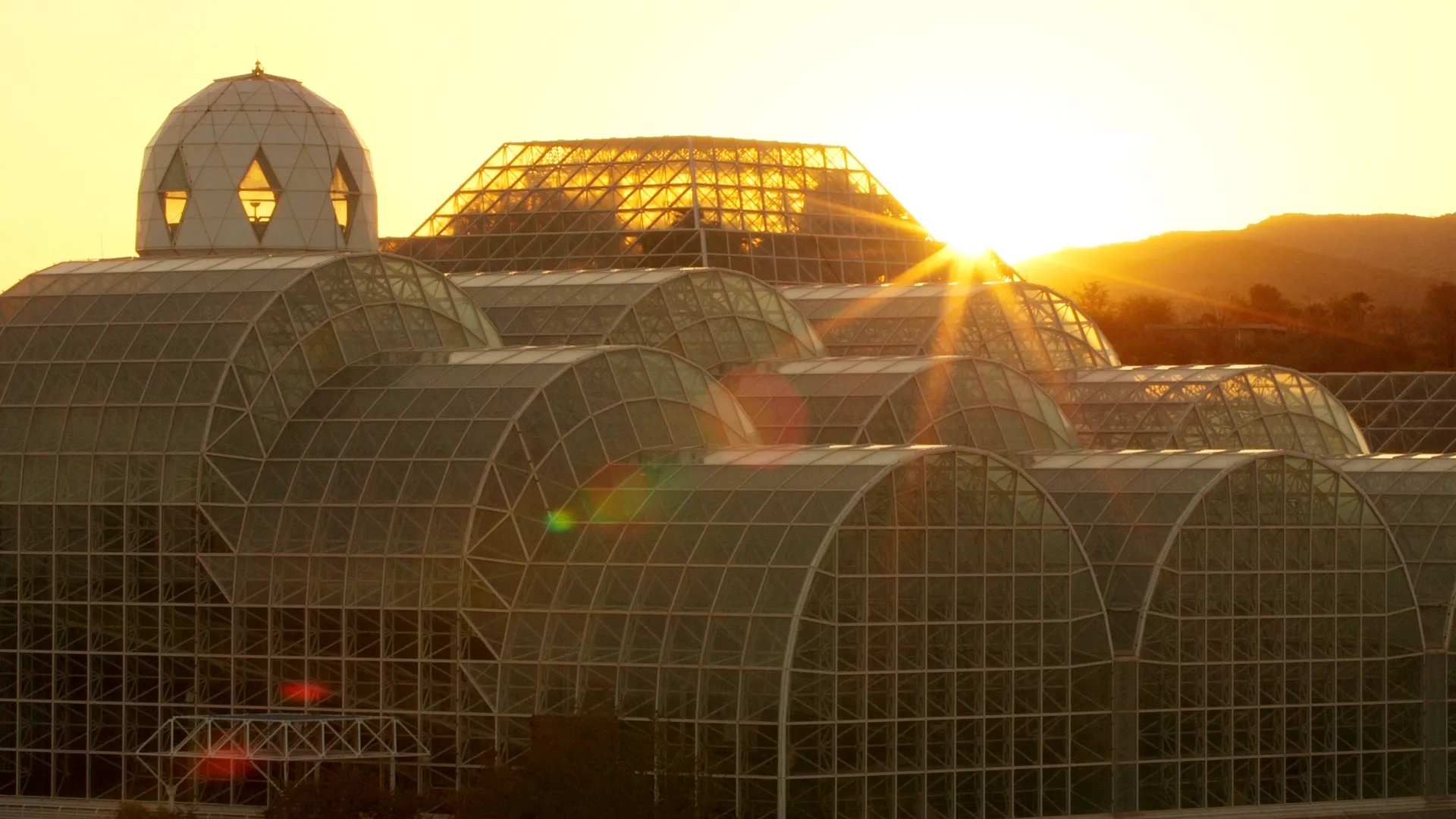UArizona Makes a French Connection
A France-Arizona partnership establishes an institute for addressing global grand challenges.

Biosphere 2
/ 160/90 photo
To our French partners, it’s incroyable. For most Wildcats, our newest voyage into trans-Atlantic science research partnerships is simply “incredible.”
The University of Arizona has been chosen as the first formal overseas partner of the top European basic research group, called the French National Center for Scientific Research, or CNRS.
In Paris, some scientists call it “the beast,” said UArizona professor Régis Ferrière during a break from teaching ecology and evolutionary biology at a partner site during an assignment in Paris’ Quartier Latin.
“When it comes to delivering science that is transforming our lives and reshaping our future,” Ferrière says, “CNRS stands as a global powerhouse.”
Powerhouse indeed: A CNRS member just won this year’s Nobel Prize in physics for work in quantum information.
The French science “beast” counts over 1,000 labs in France and 100 more around the world. Its labs operate from the Arctic Ocean to Antarctica to the Amazon.
Already, the French have joined UArizona teammates in sending instruments to Mars and using the James Webb Space Telescope to provide stunning images of galaxies.
A project based in Lyon looks for ancient forms of coronavirus and is trying to decipher how they evolved. Two joint labs in Paris are looking into the secrets of dark matter and advancing quantum technology. In Bordeaux, a UArizona-French team is examining cultural responses of native communities to resource extraction.
In short, UArizona and CNRS are digging into some of the world’s greatest issues, now with a formal pledge to back the relationship.
The pledge builds on a long history of joint efforts by UArizona and CNRS, which in fact has been UArizona’s top international research partner for decades.
The new framework is known as the France-Arizona Institute for Global Grand Challenges, or FA Institute. The “grand challenges” of the name include such pressing issues as climate change, biodiversity loss, exoplanet detection, research into black holes, and advancements in quantum technology and supercomputers.
To begin, a dozen research projects were selected in 2021 from 70 initial proposals to become the initial works of the FA Institute. The topics ranged from the future of a quantum internet to the unraveling of dark energy.
“The project leaders and their students made us dream about the science they were conducting and the discoveries that are in the making,” Ferrière says.
For 2023, he says, the FA Institute is seeking projects that tackle “habitability and environmental resilience, the food-energy-water nexus, and climate change and health.”
CNRS had quarters at UArizona as early as 2008, called the International Research Laboratory (IRL). It has studied issues such as water security in extreme climate events, and it has been co-sponsored since 2017 by the elite École Normale Supérieure (ENS) and Université Paris Sciences et Lettres (PSL).
In 2017, Ferrière was appointed director of the IRL. The next year, the new president of CNRS, Antoine Petit, announced an international strategy that involved selecting and fostering a small number of privileged relationships with partners with whom CNRS had strong collaborations. Ferrière thought, “That’s UArizona!” and started working toward that goal.
By 2020, UArizona was CNRS’s No. 2 university partner in the U.S., as measured by the impact of joint publications. (No. 1 was Harvard.)
In 2021, the FA Institute was born, and UArizona was designated as CNRS’s first International Research Center. CNRS provided $1 million in seed funding, which UArizona matched.
Joaquin Ruiz, UArizona vice president of global environmental futures, was appointed executive director of the institute, and Ferrière was named deputy director.
The launch by UArizona in March 2021 included an address by the French ambassador to the U.S., Philippe Étienne, and an endorsement by Edith Heard, head of the European Molecular Biology Laboratory.
Along the way, Ruiz has supplied “his unsurpassable vision and contagious enthusiasm” and become the university’s champion, Ferrière says. And the FA Institute, he adds, has delivered “the platinum standard of cooperation” between CNRS and UArizona.
In September 2022, the joint venture reaffirmed its major goals: to study what makes a world habitable and how to keep our world that way. In the years ahead, UArizona and CNRS will expand their research to “push the science of habitability, sustainability and resilience to new highs,” Ferrière says.
“Revolutionary science will lead to revolutionary solutions — for sustainable removal of carbon from the atmosphere, sustainable and resilient production of food and energy at scale, or preparedness for pandemics and other climate-change related extremes.”
A big draw for CNRS was Biosphere 2, the three-acre glass and steel climate-study facility outside Tucson. Its indoor, controlled environments include a tropical rainforest, a desert, an ocean with a coral reef, a mangrove forest, a savannah and agricultural land.
In France, some CNRS institutions have a smaller version, called an Ecotron, and matching up Biosphere 2 and the Ecotrons was something the French saw as a tool to help answer otherwise-puzzling mysteries.
When he first arrived at UArizona from France in 1992, Ferrière’s focus was on life adaptation to changing environments. Now, 30 years later, he is facilitating the “amazing work of UArizona scientists and their French collaborators” as they unravel the potential for life to exist and persist in the face of extreme environmental challenges. “On Earth... and maybe beyond,” he adds.
